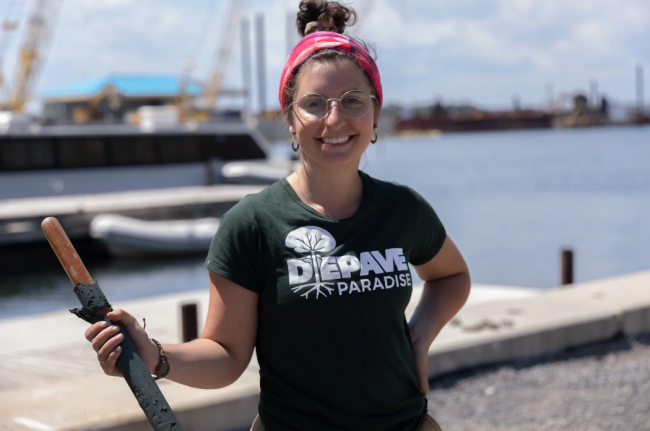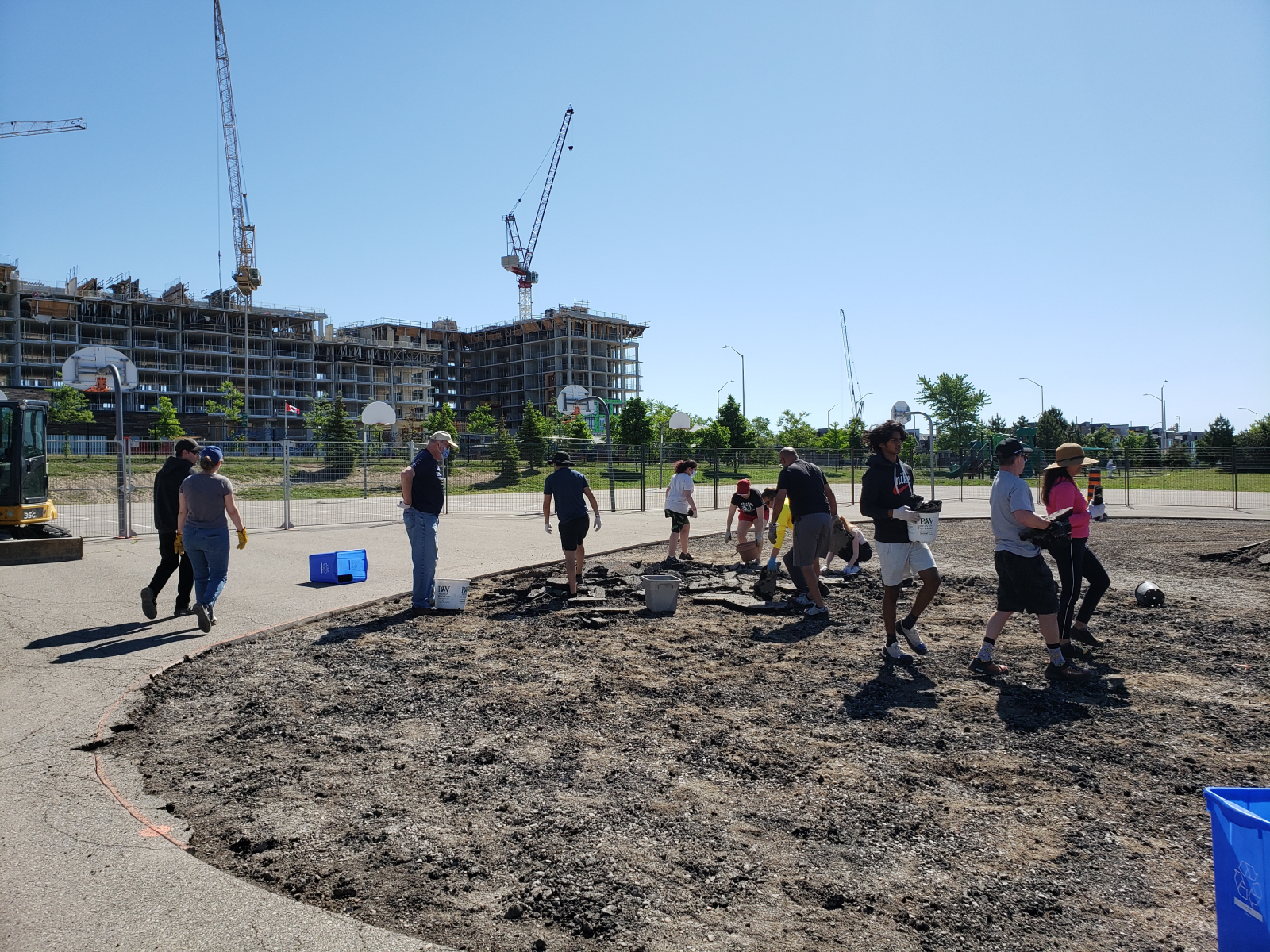Articles Menu

A Canada-wide initiative is showing people it's not too late to return the concrete jungle back to nature.
Depave Paradise, a multi-community project run by environmental non-profit Green Communities Canada (GCC), challenges the idea of urbanization as irreversible by ripping out asphalt surfaces and replacing them with gardens that can help to soak up excess rainwater.
“Climate change is getting worse and so is urbanization. Development is ongoing, and when we remove the natural landscape and replace it with asphalt and concrete, we stop rainwater from having space to absorb into the landscape,” 26-year-old Emily Amon, GCC green infrastructure programs lead, explained.
Due to urbanization, the conventional infrastructure still in place across the country is designed to rapidly send stormwater to the nearest local body of water, Amon said, but it has not changed to factor in the increased number of paved surfaces, which don’t absorb water.
“We have higher issues of flooding because there’s nowhere for that water to go,” Amon said. “Flooding and flooding issues is the primary way in which Canadians in urban areas are experiencing climate change.”
Depave Paradise was originally started in Portland, Ore., but GCC adopted a version of the program in 2012. Since then, it has tried to get people from communities across Canada to take part in green infrastructure projects.
“These are really attractive options,” Amon said, “They are less expensive and a more accessible way of replacing all of the storm drains.”
One of the 15 Depave Paradise projects that took place this past year was with the Halton Environment Network at Palermo Public School in Oakville, Ont., just before it closed for summer.
Andrea Rowe, deputy director at Halton Environment Network, hoped to help the community reconnect with nature. “By planting native species, we are increasing native biodiversity and habitat, creating green spaces and adding to the health and wellness of residents,” Rowe said. The group kicked things off by filling a dumpster with asphalt by hand.

“It’s amazing how fun it is, and people are shocked how quickly (the demolition) happens, which is part of the philosophy around this project,” Rowe said. “To not just let a machine come do it, but to reconnect with the land right from Step 1.”
Depave Paradise, a multi-community project, challenges the idea of urbanization as irreversible by ripping out asphalt surfaces and replacing them with gardens that can help to soak up excess rainwater. - Twitter
The entire school came to assist, including kindergarteners, who formed an assembly line to create seed balls and mulch the new garden, said Iga Balazy, 26, the volunteer and outreach co-ordinator at Halton Environment Network. “They came around like 20 times in the line; it was very collaborative.”
Before the two-day process started, Halton Environment Network decided to host classroom education sessions. After introducing the project to primary school kids, Balazy sent them out into the schoolyard, asking the children: “Where does the water go?”
“We wanted to make those connections between the Depave project as they understand it and the importance of having green, permeable surfaces that absorb and filter rainwater, as opposed to concrete and asphalt that they have in their schoolyard, which retains heat and contributes to water pollution,” Balazy said.
Seeing their faces, Balazy believes the most important part in engaging youth and the community is to take care of the garden once the depaving is over.
“It was remarkable to see that a community could come together to nurture this project that they have witnessed from start to finish. Because they were present for the entire process, they have that sense of collective ownership. A sense (of), ‘This is ours to care for,’” Balazy said.
“There’s not a lot of good news stories when it comes to climate change, but taking part in a project like this really helps people feel empowered and (gives them) a sense of hope because, ultimately, they are seeing that it’s not too late to go back,” Amon said.
Amon calls the idea of depaving spaces radical. “They break open the imagination to say that we don’t actually have to maintain it in this way, it can change.”
Nairah Ahmed / Local Journalism Initiative / Canada’s National Observer
[Top photo: Emily Amon, 26, the green infrastructure programs lead at Green Communities Canada, at a Depave project at Wolf Island Pier near Kingston, Ont. Photo by Mitch Bowmile / North Country Media House]